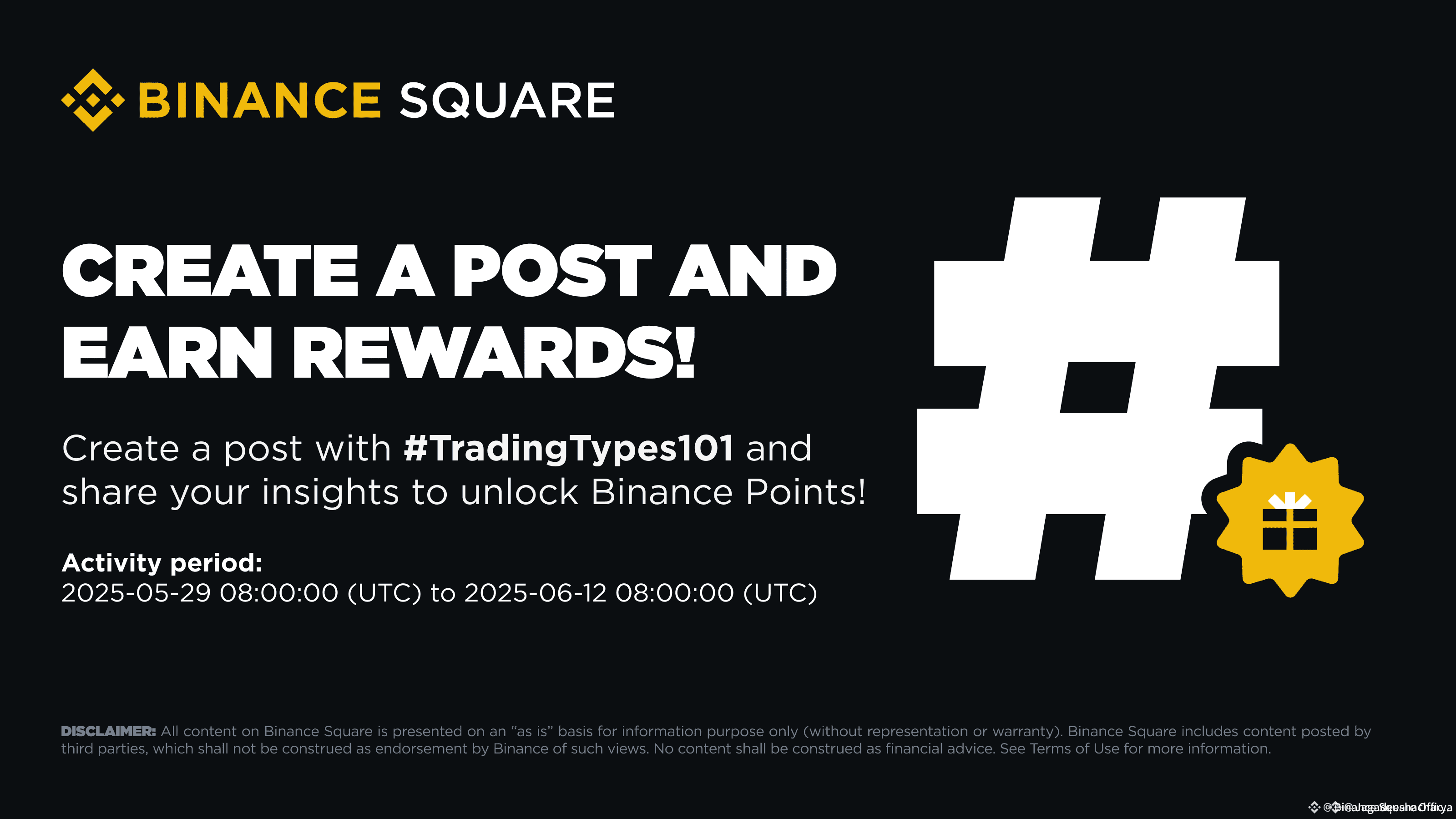#BTC.
Ever wondered how people make money from buying and selling stocks, cryptos, or other assets? Welcome to the exciting world of trading! But before you jump in, it's crucial to understand the basics. This "Trading 101" post will give you a foundational overview.
What is Trading?
At its core, trading is the act of buying and selling financial instruments with the goal of profiting from price fluctuations. You buy low and sell high (or vice-versa in short-selling!).
Key Concepts You NEED to Know:
* Assets/Instruments:
* Stocks (Equities): Shares of ownership in a company (e.g., Apple, Google).
* Forex (FX): Currency pairs (e.g., EUR/USD, USD/JPY). The largest financial market in the world!
* Commodities: Raw materials (e.g., Gold, Oil, Wheat).
* Cryptocurrencies: Digital or virtual currencies (e.g., Bitcoin, Ethereum).
* Bonds: Debt instruments issued by governments or corporations.
* ETFs (Exchange Traded Funds): Baskets of securities that trade like individual stocks.
* Buyers & Sellers: For every trade, there's a buyer and a seller. The interaction of their supply and demand determines prices.
* Bid & Ask Price:
* Bid: The highest price a buyer is willing to pay.
* Ask (Offer): The lowest price a seller is willing to accept.
* The difference between the bid and ask is called the spread.
* Market Orders vs. Limit Orders:
* Market Order: An order to buy or sell immediately at the best available current price. (Fast, but price isn't guaranteed).
* Limit Order: An order to buy or sell at a specific price or better. (You control the price, but the order might not fill).
* Volatility: The degree of variation of a trading price series over time. High volatility means prices can change rapidly.
* Liquidity: How easily an asset can be bought or sold without affecting its price. Highly liquid markets have many buyers and sellers.
* Risk Management: THIS IS CRUCIAL!
* Stop-Loss Order: An order to automatically sell an asset if it reaches a certain price, limiting potential losses.
* Position Sizing: Determining how much capital to allocate to a single trade. Never risk more than you can afford to lose on one trade!
Before You Start Trading:
* Educate Yourself: Read books, take courses, watch tutorials. The more you learn, the better.
* Define Your Goals: Are you looking for short-term gains (day trading) or long-term growth (investing)?
* Start Small & Practice: Consider using a demo account (paper trading) first to practice without real money.
* Develop a Trading Plan: This includes your strategy, risk management rules, and entry/exit criteria.
* Manage Your Emotions: Fear and greed are powerful emotions that can lead to bad decisions. Stick to your plan!
Trading can be a rewarding journey, but it requires discipline, continuous learning, and a solid understanding of the risk involved. Don't rush, learn, and always prioritize protecting your capital!
involved. Don't rush, learn, and always prioritize protecting your capital!
What are your biggest questions about trading? Share them in the comments be#FinancialLiteracy #BeginnerTrader